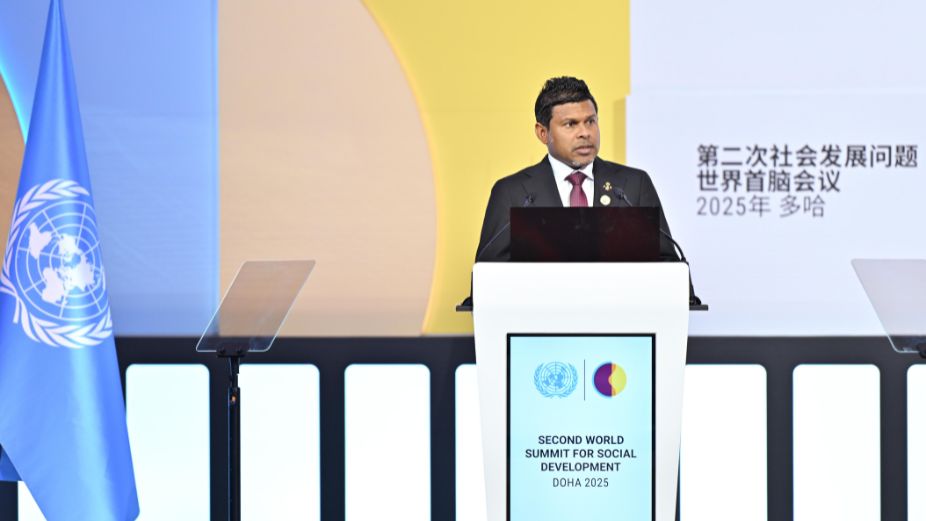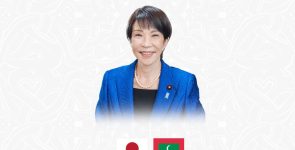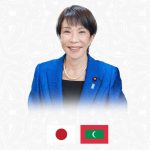
Vice President Hussain Mohamed Latheef addressed the Second World Summit for Social Development (WSSD2) in Doha on Tuesday, highlighting the Maldives’ commitment to advancing social progress through inclusivity, equity, and resilience.
In his remarks, the Vice President reflected on the global efforts since the first summit held in 1995 in Copenhagen. He noted that while the ambition to place social development at the centre of global policy remains clear, progress has been uneven. Challenges such as gender inequality, widening social divides, and the worsening impacts of climate change continue to slow advancement, he said.
Focusing on the specific challenges faced by Small Island Developing States (SIDS), the Vice President said that people remain the Maldives’ most valuable resource and that investing in healthcare, education, digital transformation, and climate resilience remains a national priority. These areas, he added, are guided by the Sustainable Development Goals.
He also raised the need for greater fiscal flexibility to sustain social programmes, proposing that national debt could be converted into instruments for building resilience. Such initiatives, he said, could strengthen social protection systems, improve climate-resilient infrastructure, and expand digital access.
The Vice President pointed to several domestic initiatives aimed at strengthening social welfare, including universal health coverage and old-age pensions, as well as policies to diversify the economy. He mentioned the Maldives Creative Economic Strategic Action Plan, which targets a 15 percent contribution to GDP by 2030 through the creative sector.
Concluding his address, he called for stronger global cooperation and reform of the international financial system to enable countries to invest more effectively in people and communities.
The Second World Summit for Social Development brought together global leaders, international organisations, and civil society representatives to assess progress and renew commitments toward social equity and sustainability.











